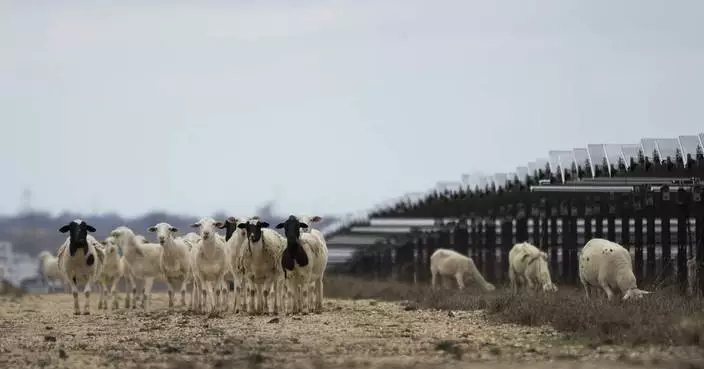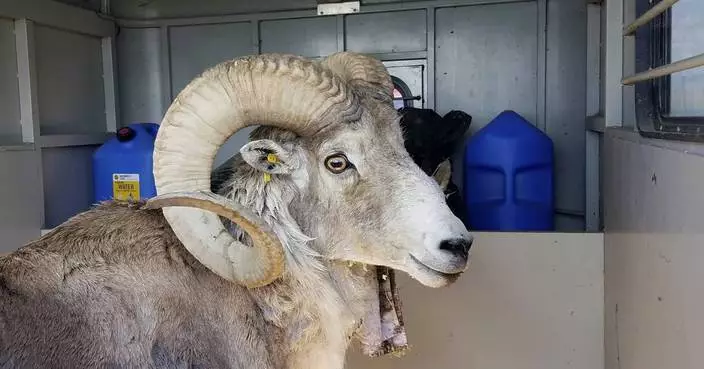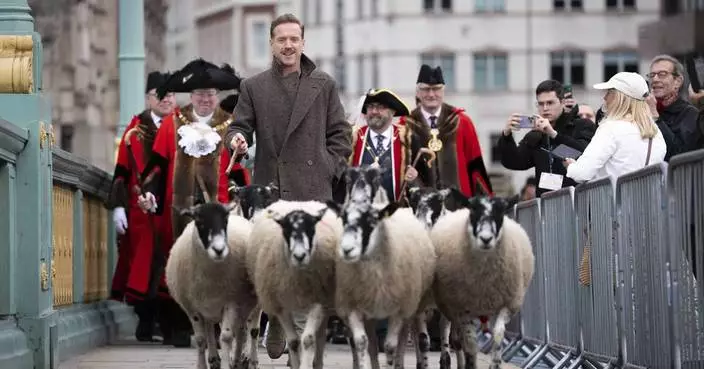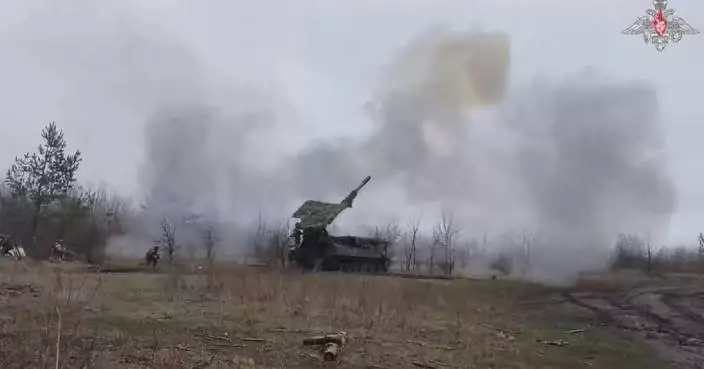This is the revolting footage captured by an undercover investigator who worked at 25 farms in England in May and June, who aimed to send it to the Royal Society for the Prevention of Cruelty to Animals (RSPCA) for further investigation.
In the video, the innocent sheep were seen to be slammed to the ground mercilessly, as the workers roughly shear off their wool. Due to their crude and rushed shaving technique, the workers often wound the animals, and would stitch up wounds on the stop with no anaesthetic, causing the poor animal to scream in pain.
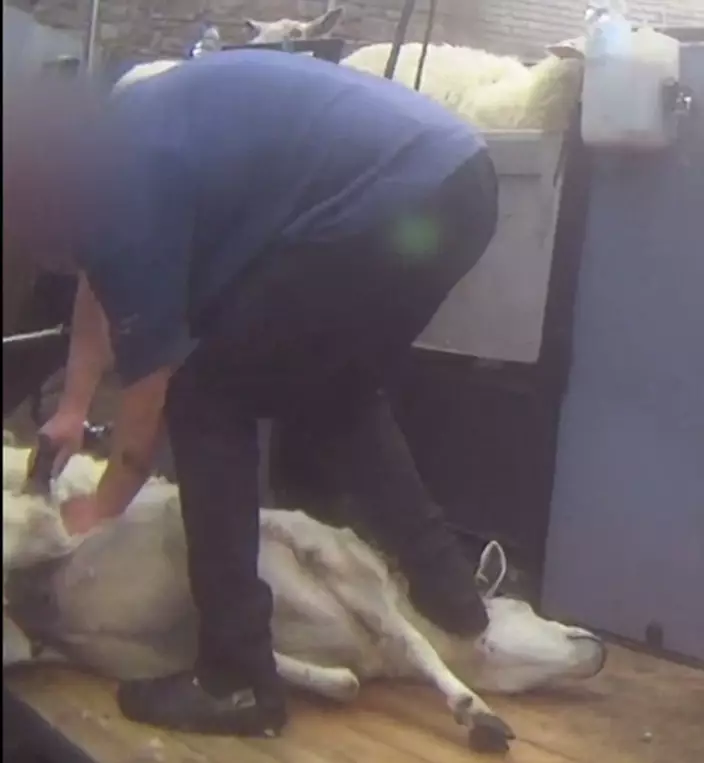
Video screencap
"The shearers are paid between 85p and £1 per sheep, so they are incentivised to work as quickly as possible," said the investigator, who preferred to remain unnamed.
"The sheep don't like being sheared so they struggle a bit. When it's a hot day and they are really tired the shearers would often completely lose it and take it out on the animals.
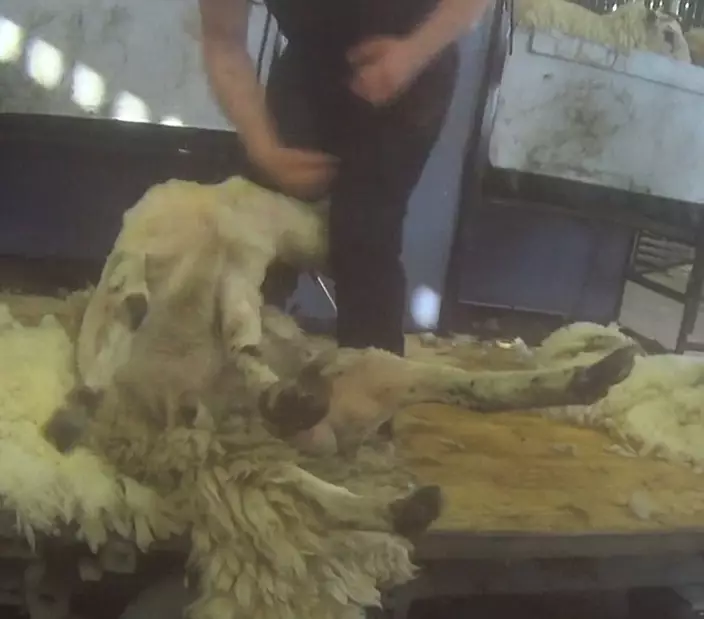
Video screencap
"It was extremely common to see that; workers punching or kicking sheep, throwing them around or stamping on their necks to pin them down.
"If the sheep were cut while they were being sheared then the worker would just get a needle and thread out and sew the wound up as quickly as possible with no anaesthetic.
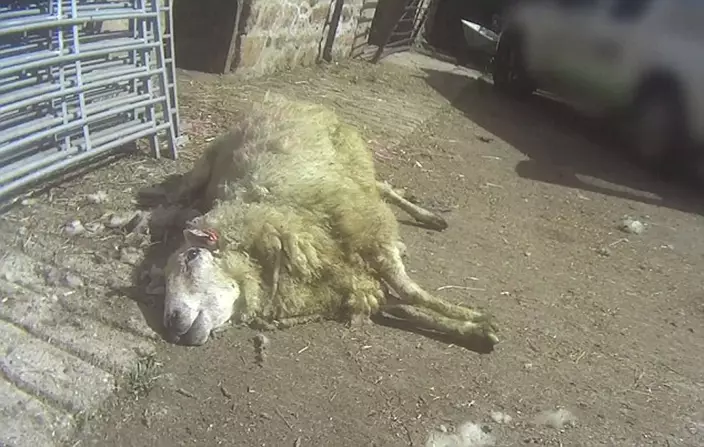
Video screencap
"By stopping to do that he was losing money so it was always rushed and you could see the animal was in huge pain."
Andrew Butler, the spokesman for PETA Asia accused the industry of ignoring animal welfare, saying: "They are prey animals and as soon as you isolate one from the flock to shear them or transport them that causes immediate distress to that animal."
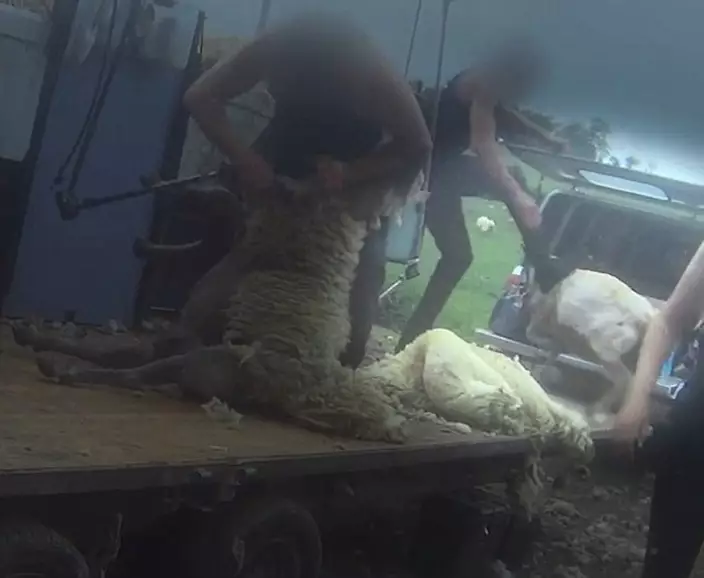
Video screencap
One offended netizen commented: "Sadistic bullies. Cowards usually express themselves, by picking on, or hurting someone weaker than themselves."
ALGIERS, Algeria (AP) — Algeria’s president has announced plans to import a staggering 1 million sheep ahead of this year’s Eid al-Adha, the holiday during which Muslims worldwide purchase livestock for sacrifice.
President Abdelmadjid Tebboune on Sunday instructed his ministers to launch plans for the massive livestock import effort to stabilize costs and meet soaring demand.
The plan is the latest in a series of measures designed to ease public frustration over rising costs and the military-backed government's uncompromising grip on power.
It builds on previous efforts to flood markets with food staples throughout Islam's holy month of Ramadan. Yet its scale has few parallels.
North Africa is enduring its seventh consecutive year of extreme heat and below-average rainfall. The record drought has shrunk harvests and driven up the price of animal feed needed to raise livestock, including in the northern Algerian highlands where breeders raise sheep revered by the population for their quality.
Algeria’s government has traditionally played a dominant role in the economy and in the past imported livestock in small quantities to ensure affordable options for low-income citizens. Last year, it facilitated the sale of 100,000 sheep in state-run stores, sourcing them from Argentina, Australia, Brazil and Spain.
Eid al-Adha, which takes place this year in early June, is an annual “feast of sacrifice” in which Muslims slaughter sheep to honor a passage of the Quran in which the prophet Ibrahim prepared to sacrifice his son as an act of obedience to God, who intervened and replaced the child with a sheep.
It's a celebrated tradition in Muslim-majority Algeria, yet also a pricey proposition. During last year’s Eid, sheep prices skyrocketed to 200,000 Algerian dinars ($1,496) in some markets — ten times the country’s minimum wage. Many Algerians have in recent years been forced to forgo the cherished tradition.
This year’s initiative aims to prevent price spikes and shortages that could put the ritual sacrifice out of reach for most Algerian families.
The Ministries of Agriculture and Trade will immediately seek international sources to meet Tebboune’s target, hoping to counteract the soaring inflation that has pushed basic goods and services — including meat — beyond the reach of many.
“Thank God, this year’s Ramadan is a blessing. The markets are well-stocked, housewives can shop without stress, without pressure. Products are available, and prices are accessible,” said Yasmine Zireg, a mother of three, on Monday.
History has shown that food prices can incite widespread political anger in North Africa and Algeria isn't the only country taking steps ahead of Eid Al-Adha.
Its import plan comes just ten days after neighboring Morocco’s King Mohammed VI offered his subjects a reprieve from the costly ritual. The King said in a Feb. 27 letter read on state-run television, warned that the slaughter could burden low-income Moroccans and, as the highest religious authority under Moroccan law, said they could forgo it.
The move — which was widely covered in Algerian media — could harm livestock producers and put disparities between those who can afford sheep and those who can't on stark display.
Tebboune’s intervention is also designed to make the Eid more feasible for those who otherwise couldn't afford sheep. It's one of several government spending policies Algeria has put in place to calm social unrest while continuing to crack down on opposition parties, journalists and people critical of the military-backed government.
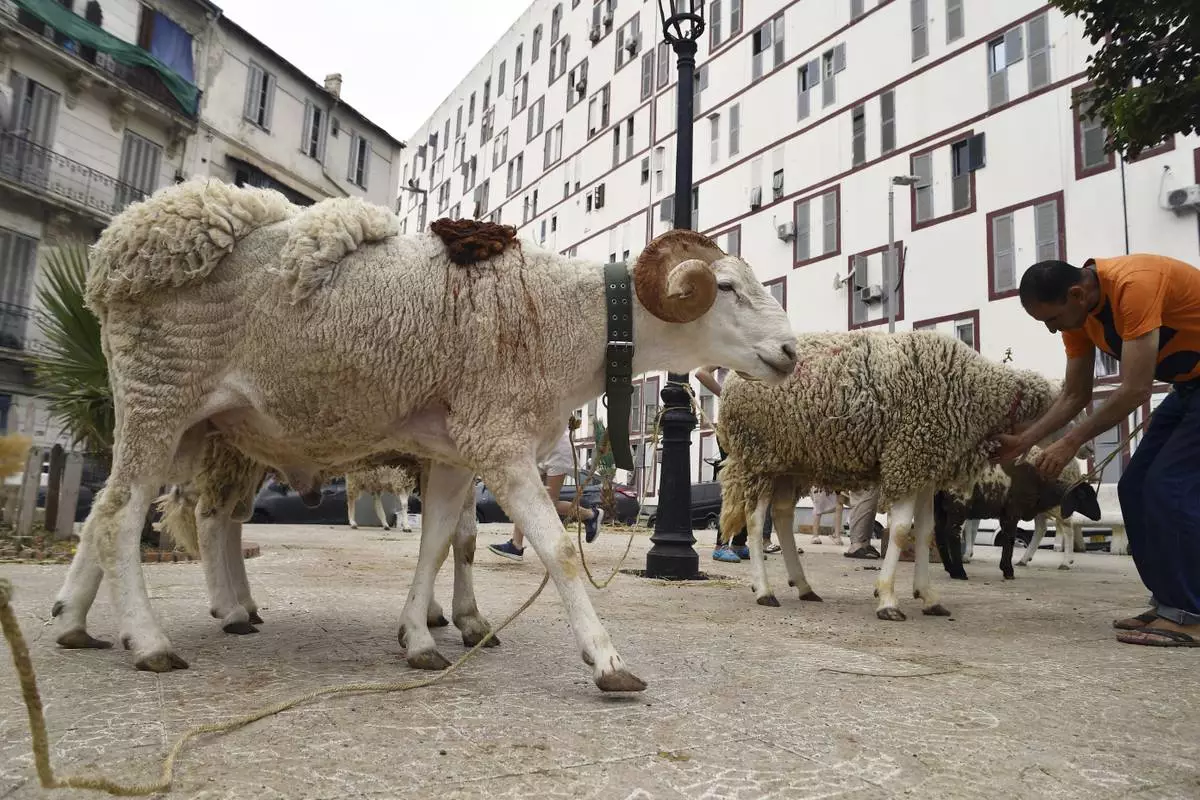
FILE - Sheeps are for sale in a northern district of Algiers, Saturday June 8, 2024, ahead of the Eid al-Adha, or "Feast of Sacrifice," when Muslims around the world slaughter sheep and cattle in remembrance of Abraham's near-sacrifice of his son. (AP Photo/Anis Belghoul, File)











